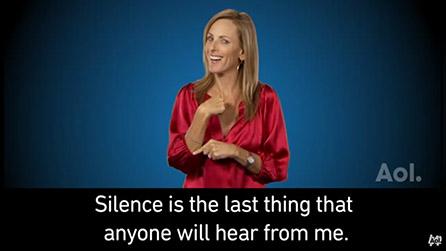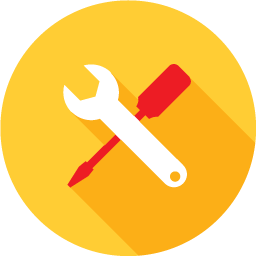
Welcome to the RAISE e-news letter, designed to identify and share resources that the Rehabilitation Services Administration Parent Training and Information Centers (RSA-PTI) can use and share with families.
Executive Editor: Peg Kinsell
Visit our Website:
|
About RAISE
RAISE, the National Resources for Access, Independence, Self-Advocacy and Employment is a user-centered technical assistance center that understands the needs and assets of the RSA-PTIs, coordinates efforts with the TA provided by PTI centers and involves RSA-PTIs as key advisors and partners in all product and service development and delivery.
RAISE is funded by the US Department of Education to provide technical assistance to, and coordination of, the 7 PTI centers (RSA-PTIs). It represents collaboration between the nation's two Parent Technical Assistance Centers (PTAC) and the seven Regional PTACs.
Find your Parent Technical Assistance Center (PTAC)
|
|
 |
National Disability Employment Awareness Month
"This month, let us continue striving to forge a future where workplaces are more inclusive and where employees are more accepted for who they are. And because we know that our country does best when everyone gets their fair shot, let us keep working to ensure no one is left behind or unable to pursue their dreams because of a disability."
- President Barack Obama
Click here for the poster in Spanish >>
And, if you have the time, just an hour, you can sit in on the kickoff celebration of National Disability Employment Awareness Month (NDEAM). The event highlights USDA's new Disability Mentoring Model as a means to support increased employment and advancement of individuals with disabilities, and provides the framework for agencies and disability organizations to collaborate and share resources. Hear from top leaders about how the federal government is working to increase hiring, advancement, and retention of people with disabilities, and learn about a new multi-sector disability mentoring model.
|
PERSPECTIVE:
"MAKE SOME NOISE"

We love this Youtube video of advocate Marlee Matlin sharing her thoughts about noise and silence in a deaf person's world.
|
 RESOURCES: RESOURCES:
Debunking the Myths - Work and Disability Benefits
We love this simple, straightforward mythbuster about work and disability benefits developed by the Social Security Administration. Here are the three most common misconceptions and why they are wrong:
1) If I try to go to work, I will automatically lose my Medicare or Medicaid
This is a myth. First, as long as you keep receiving a benefit check of any amount, you will keep your health insurance. If you earn enough that your Social Security Disability Insurance (SSDI) checks stop, Medicare can continue for up to 93 months. If you currently receive Medicaid, you should be eligible to continue to receive Medicaid even after you stop receiving Supplemental Security Income (SSI) benefits due to work. To be eligible you need to meet certain requirements, which include earnings below a threshold amount set by your state. Even if your earnings exceed the state threshold, you may still be eligible and should talk to your state Medicaid office.
2) If I use my Ticket to Work, Social Security will conduct a medical review of my case, and I will lose my benefits.
This is also a myth. Social Security ordinarily reviews your medical condition from time to time to see whether you are still disabled, using a process called the medical Continuing Disability Review (CDR). If you participate in the Ticket program with either an Employment Network or your State Vocational Rehabilitation Agency, and make "timely progress" following your individual work plan, Social Security will not conduct a review of your medical condition. If a medical CDR has already been scheduled for you before you were assigned your ticket, Social Security will continue with the medical CDR.
3) If my checks stop because I go to work and then I have to stop working because of my disability, I will have to reapply for benefits all over again. It took me forever to be approved for benefits and I cannot afford to wait that long again. As a result, I should not try to work.
Again, it's a myth. You will not need to reapply if your benefits ended within the past five years due to your earnings and you meet a few other requirements, including that you still have the original medical condition or one related to it that prevents you from working. This is a work incentive called Expedited Reinstatement. You may even be able to receive up to six months of temporary cash benefits in addition to Medicare or Medicaid coverage while SSA conducts a medical review to determine if your benefits can be reinstated.
|
 MAKING YOUR POINT: MAKING YOUR POINT:
Face it. Interviews are stressful for anyone. We love these ideas from employment leader
Monster.com for jobseekers with disabilities.
In these simple tips, they emphasize a "winner's mindset" as you prepare.
Before the Interview...
- Do Your Research: Find out as much as you can about the company or agency by going online, asking people you know in the field and by seeing what you can find out about the job you are applying for.
- Find Out About the Interview and Interviewers: Call ahead and ask if there is public transportation, on-site parking, if you need a visitor's pass, etc. Ask who will be conducting the interview to find out if it will be an individual or a group. If there are accessibility concerns, you will need to ask about that at this time.
- Prepare How You Will Answer Questions About Your Disability: If you have a choice, decide whether to disclose your disability. Think about what the job entails and how you will handle it based on your situation.
- Consider How You Will Address Gaps in Your Work History: You'll need to address the time period, and if you have been on disability benefits, why you are returning to work now.
- Put Yourself in the Interviewer's Mind: Look to your own experiences to consider any concerns the interviewer may have. Write down answers to these possible questions.
- Find a Person You Trust to Go Over Your Responses: Use the feedback to improve and then rehearse. Imagine that this interview is a drama and that you are the star performer. You want to achieve the same state cultivated by good actors who rehearse their lines so well that they sound absolutely natural. You need the concepts to be clear in your head.
- Choose Your Wardrobe Carefully, and Heed Your Appearance: It's important to look your best for the interviewer, but it's even more important for you to feel your best. If you smoke, don't have a cigarette to calm your nerves right before the interview. Promise yourself one as a reward afterwards.
At the Interview...
- Go in with Confidence: If you don't project the belief that you can do the job, no one else will believe it.
- Listen Carefully: Make sure you answer the question you're asked and not something you thought you would be asked. Also, in your listening, you may pick up cues about the kind of answer the interviewer wants. It's OK to pause before you answer. It's better to give a well-thought-out response than to sound glib and off-track.
- Be Upbeat and Cheerful: Be humorous if appropriate.
- Don't Show Anger: Educate When You Hear Biased Statements: The interviewer may be ignorant about your disability. Although you may hear statements or sense attitudes that shock you, stay cool in the interview. What you hear or feel may convince you that this is not a place you want to work. But you have an opportunity to give information and change ideas about your disability. If you have examples that disprove the stated or implied concern, discuss them briefly and, if possible, tie them into the job description you would have.
- Learn from the Experience: If you're successful, congratulations! If you're not offered this job, talk about the process with someone whose opinion you value. See what you can learn about doing even better the next time around. For every job opening, there are many applicants and only one gets the job. It may or may not be your disability that cost you this particular position. Keep trying. Eventually, the right job will find you.
We also like this audio file podcast from Dan Woog, at Monster, who advises "Sell yourself first."
|

TOOLS THAT WORK:
Flexible Work Arrangements & Customized Employment
Did you know that only 17% of households are considered 'traditional,' with a husband who works and wife who does not. So what is the new 'tradition'?
The US Department of Labor sees an ever-growing demand for flexible work arrangements. In fact, according to a recent study, nearly four out of five working Americans--across age, income, and stage in life--want more flexibility at work.
Customized Employment is one form of the growing movement of workplace flexibility or flexible work arrangements (FWAs) - flexibility around the job tasks rather than the location or the schedule.
We love the two websites below, which include an index of resources on Flexible Work Arrangements as a strategy for increasing the employment of people with disabilities.
|
 NEWS FROM WASHINGTON: NEWS FROM WASHINGTON:
SSI Benefits to Increase
Individuals with disabilities receiving Supplemental Security Income or other Social Security benefits will see a small increase - about $2 a month - starting in January. The change affects 60 million Americans on Social Security, and 8 million on SSI. The 3% increase is due to an automatic cost-of-living adjustment, based on inflation.
|
|